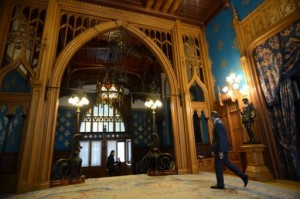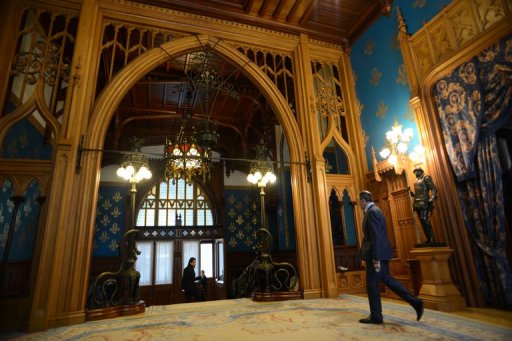By Dmitry Zaks, Maria Antonova

Moscow (AFP) – Russia said Saturday there was still a chance of finding a political solution to the Syrian conflict while acknowledging that President Bashar Al-Assad would not be persuaded to leave power.
Moscow’s caution came as forces loyal to Assad seized a district of the strategic central city of Homs after a fierce assault that a Britain-based watchdog said sparked a humanitarian crisis.
The latest diplomatic push saw Russian Foreign Minister Sergei Lavrov meet UN-Arab League peace envoy Lakhdar Brahimi for talks that represented a final end-of-year bid to accelerate moves to halt 21 months of bloodshed.
The meeting came amid emerging signs that Russia was beginning to distance itself from Assad’s government and urgent efforts by Brahimi to resurrect a failed peace initiative that world powers agreed to in Geneva in June.
Brahimi bluntly stated that Syria was facing a choice between “hell or the political process” while urging the world to work tirelessly to bring about a diplomatic solution.
“It is really indispensible that the conflict finishes in 2013 and really the beginning of 2013,” Brahimi said after the 90-minute talks.
“The Syrian people are not in a position to start this process alone and it is the duty of the international community to help.”
Lavrov said both he and Brahimi agreed there was a chance for a solution to the conflict as long as world powers put pressure on the warring parties to accept a mediated end to violence that has claimed more than 45,000 lives.
“The confrontation is escalating. But we agree the chance for a political solution remains,” Lavrov said alongside Brahimi.
Moscow has been under intense pressure to urge the leadership of its last Middle East ally to accept a face-saving agreement that would see the rebels assume gradual command as the fighting reaches Damascus itself.
Yet analysts have questioned the actual sway the Kremlin has over Assad, and Lavrov appeared to betray a hint of frustration when revealing that Assad had this week told Brahimi that he does not intend to leave.
“Regarding Bashar Al-Assad, he repeatedly said, both publically and in private… that he is not planning to leave, that he will remain in his post,” Lavrov said.
“There is no possibility to change this position.”
Brahimi painted a stark picture of Syrian neighbours Jordan and Lebanon being overrun by a million refugees should heavy fighting for the seat of power break out in Syria’s five-million-strong capital.
If this fighting “develops into something uglier… (refugees) can only go to only two places – Lebanon and Jordan,” warned Brahimi.
“So if the alternative is hell or the political process, we have all of us got to work ceaselessly for a political process,” Brahimi said.
“The magnitude of the problem that exists now and the magnitude of the problem that exists tomorrow cannot be ignored,” he added.
Brahimi’s trip came amid a flurry of diplomatic activity in Moscow that this week also saw a rare visit by the Syrian deputy foreign minister as well as Egypt’s top diplomat.
Russia also confirmed on Thursday that it had invited the head of the opposition National Coalition – recognised by Western powers as Syria’s representatives – for the two sides’ first formal talks.
The offer was widely interpreted as a bid by Moscow to cement a foothold in a post-Assad Syria – a radical shift from its earlier condemnation of those who recognised the rebel group.
But National Coalition chief Ahmed Moaz Al-Khatib rejected holding any meeting in Moscow. He also said the Kremlin must apologise for its past support of Assad before any meeting could be held in a third country.
Lavrov did little to conceal his fury at Khatib’s response.
“I understand that Mr. Khatib is not very fluent in politics and maybe he could benefit by hearing our position not from the media… but directly from us,” he said.
Brahimi and Lavrov revealed no details of any peace initiative that may be under discussion and instead focused on urging world powers to convince Assad and the opposition to talk.
But any peace initiative with Assad remaining in power on an interim basis would have difficulty winning acceptance from rebels who have made major advances in recent weeks.
The Moscow meeting came as forces loyal to Assad seized a district of the central city of Homs that had been under prior rebel control.
“The army launched an offensive several days ago on the neighbourhood of Deir Baalbeh with heavy bombing, and the fighting and attacks continued until the rebels withdrew,” said the Britain-based Syrian Observatory for Human Rights.

